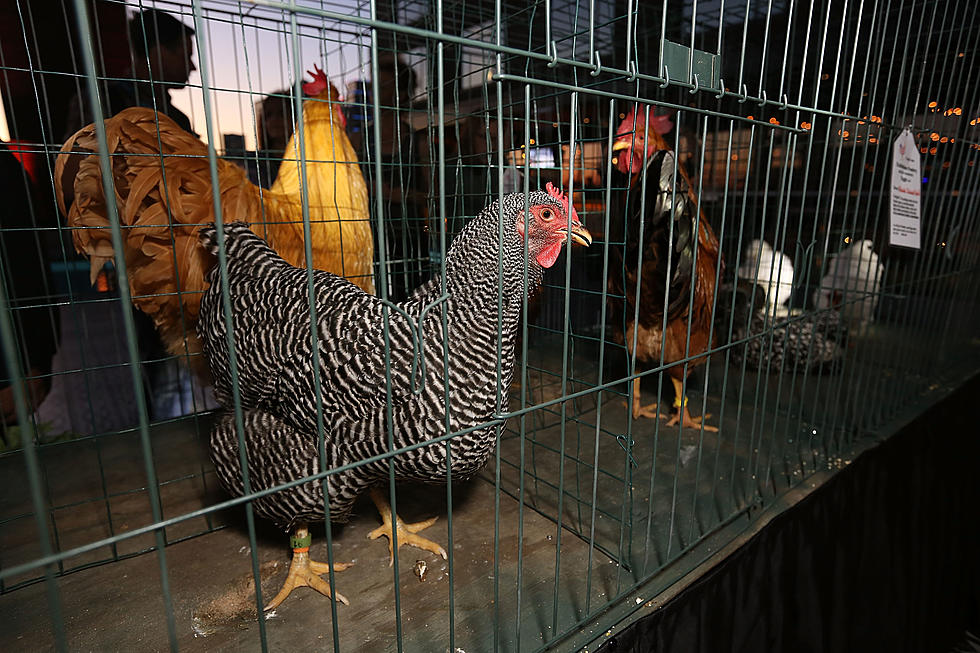
Should the Meola Scandal Have Hit the News?
It’s not every day in Utica that we get a media alert inviting the local news to a press conference about a ‘top elected official exposed in scandal and abuse of power’ accusations.
It happened this week and both WIBX and the Observer Dispatch covered the story.
I’m a commentator, not a news person and I played no role in the decision to cover this story. It’s my job to discuss the issues of the day and to inspire conversation and sometimes to even give my opinion, so - here goes.
Should this story have been made public?
The simple answer is, no. It’s a private matter involving families and seems to have had nothing at all to do with local government. It also seems that it could possibly have been exposed for political reasons and for the sole purpose to embarrass and humiliate Mr. Meola and Ms. Torres.
Should this story have been covered in the news?
That is a very different question.
Once Alexis Torres held a press conference exposing the allegations of his story, everything started to change.
He spoke of unreported campaign contributions and favoritism in the Democratic Party. He spoke about an atmosphere that involved payback and even the chance that he could lose his State job and felt his life was in danger. This was a game changer.
It’s not the media’s job to serve as judge and jury when it comes to an accusation and someone’s version of a story. While there are some exceptions, it’s also not the role of the media to protect families and friends from the ugly details of someone’s actions, even if it causes pain and embarrassment.
We should always strive for the truth and be very careful that we present a story so it clearly differentiates fact from a source's opinion. The only real fact we know to be true in this story is that Mr. Torres has made these accusations. We were given text messages, voice mails and saucy details - all of which are unsubstantiated.
It is also a very important job of the media to determine if something really is newsworthy, which is a key factor in this story.
I assume that the local news departments that decided to run this story would have used a foundation from at least one of two modern-era guides to determine if an issue is actually worthy of news coverage. The Gatlung and Ruge model is from 1973 and Shoemaimker et al., was developed for a more modern approach in 1987.
Based on these standards, this story meets the criteria of being newsworthy.
- Gatlung and Ruge, 1973
- Relevance - How relevant is a news story to the audience in question? For example, a California earthquake is almost always more relevant to a West Coast audience than to an audience in Calcutta.
- Timeliness - How recently did the event unfold? Timing is of the utmost importance in today’s 24 hour news cycle. Recent events, or events in the making, are most likely to lead the news.
- Simplification - Stories that can be easily simplified or summarized are likely to be featured more prominently than stories that are convoluted or difficult to understand.
- Predictability - Certain events, such as elections, major sporting events, astrological events, and legal decisions, happen on a predictable schedule. As the event draws closer, it typically gains news value.
- Unexpectedness - On the other hand, events like natural disasters, accidents, or crimes are completely unpredictable. These events are also likely to have significant news value.
- Continuity - Some events, such as war, elections, protests, and strikes, require continuing coverage. These events are likely to remain in the news for a long time, although not always as the lead story.
- Composition - Editors have to keep in mind the big picture—the sum of all content in their media outlet. For this reason, an editor might select soft human interest stories to balance out other hard hitting, investigative journalism.
- Elite People - Certain individuals, like politicians, entertainers, and athletes, are considered, by virtue of their status, more newsworthy. If someone throws a shoe at an everyday person, it’s probably not news. If someone throws a shoe at the President of the United States, it will likely be in the news for weeks.
- Elite Countries - Famine, drought, and national disasters are more likely to draw attention if they are happening in “First World” countries than if they are happening in developing countries.
- Negativity - Generally speaking, editors deem bad news more newsworthy than good news.
###
- Shoemaimker et al., 1987
- Timeliness - Shoemaker et al. also recognize timeliness as a critical news value.
- Proximity - Similar to Gatlung and Ruge’s “Relevance.” The closer an event takes place to the intended audience, the more important it is. This is why huge local or regional stories might not make the national news.
- Importance, impact, or consequence - How many people will the event impact? Issues like global warming issues have become big news in recent years precisely because environmental changes affect the entire planet.
- Interest - Does the story have any special human interest? For example, the inspirational story of a person overcoming large odds to reach her goal appeals to a fundamental human interest.
- Conflict or Controversy - Similar to Gatlung and Ruge’s “Negativity.” Editors generally deem conflict more newsworthy than peace.
- Sensationalism - Sensational stories tend to make the front pages more than the everyday.
- Prominence - Similar to Gatlung and Ruge’s “Elite People.” The actions of prominent people are much more likely to make the news than non-public figures.
- Novelty, oddity, or the unusual - Strange stories are likely to find their way into the news. Dog bites man—no story. Man bites dog—story.
I once conducted an interview on radio that focused on some pretty unsavory people and their hateful views on society. I was criticized for the interview and was asked why I would want to give that person a venue to promote their terrible views.
“It’s educating the public,” I said. “That way, they have the knowledge to form an educated opinion. Our job is to inform, not protect the public from itself.”
Still, I firmly believe this scandal in Utica should have remained private. Yet, it’s not fair to say that the media is at fault for covering the story. Mr. Torres made this a news story when he charged that there was a misuse of political and governmental power. Now, as ugly as this story is, it’s up to the people to decide.
When all is said and done, public opinion might shine negatively on Meola and Torres; yet people might also sympathize with the two. We might even discover what many are suspecting, that this was politically motivated and Mr. Torres had someone encouraging him to go public from the beginning. If that’s the case, people might hold accountable, the third party who orchestrated the whole thing.
Public opinion is a funny thing. Just when you think you’ve figured it out, it surprises you- and figures you out.
More From WIBX 950









